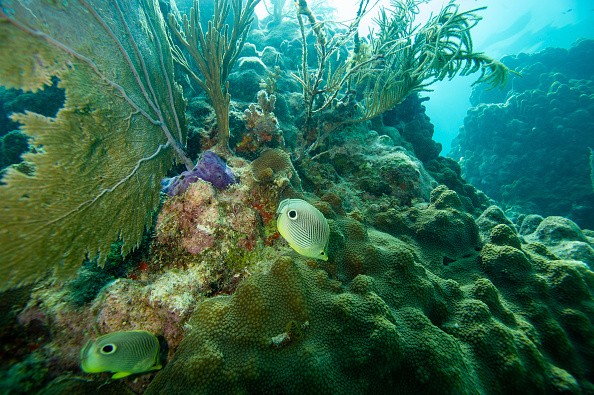Florida Keys are facing a marine crisis as a month-long string of fish kills has been reported along the island chain.
Scientists and fishing captains have observed dead fish of 13 species, including mojarras, grunts and toadfish, floating in the shallow waters from Key Largo to Key West.
The cause of the fish kills is the soaring sea surface temperatures that have reached record highs and are running some seven degrees above normal.
Climate change is the main culprit behind the lethal heat that threatens the world's third-largest barrier reef and its inhabitants.
Climate change is causing fish kills in the Florida Keys

As per Florida Fish and Wildlife Conservation Commission, scientists and fishing captains have observed dead fish of 13 species, including mojarras, grunts and toadfish, floating in the shallow waters from Key Largo to Key West.
The cause of the fish kills is the soaring sea surface temperatures that have reached record highs and are running some seven degrees above normal.
Climate change is the main culprit behind the lethal heat that threatens the world's third-largest barrier reef and its inhabitants.
The fish kills are not only affecting the Florida Keys, but also other parts of the state.
In July, hundreds of tons of dead fish washed up on the shores of Tampa Bay, a result of an overgrowth of toxic algae, known as red tide, that came inland earlier this summer.
The algae, Karenia brevis, kills fish and other marine organisms by releasing toxins that affect their nervous systems.
The fish kill impacts have been seen from North Miami to Virginia Key, and some environmental groups warn that the Bay is suffering from a collapse in certain locations.
Also Read : Climate Change Leads To Mass Fish Death In UK
Ecological and economic impacts of fish kills on the reef and the bay
The Florida Keys are home to a rich biodiversity of marine life and a thriving tourism industry that depends on the health of the reef.
The reef also protects the coast from storm surges and erosion, as per Phys.org.
A major seagrass die-off caused by the deadly heat, according to some experts and fishing captains, might upset the balance of the entire bay for years.
Seagrass meadows are important habitats for many fish species, including snook, bonefish, and tarpon, as well as manatees and sea turtles.
Seagrass also helps filter pollutants, store carbon and stabilize sediments.
Fish kills have devastating impacts on local ecosystems, causing mortality and sickness in organisms across multiple trophic levels. It also results in economic loss and overall ecosystem degradation.
These occurrences have had an impact on wild populations as well as aquaculture stocks.
The National Oceanic and Atmospheric Administration estimates that Florida's coral reefs produce 70,400 full- and part-time jobs and $2 billion in local revenue annually.
Actions and solutions to save the reef and its inhabitants
Some local groups have been taking action to save the reef and its inhabitants.
The Coral Restoration Foundation has been collecting samples of genetic strains of coral from ocean nurseries and placing them in cooler land-based tanks where they can be safeguarded, as per U.S. National Office for Harmful Algal Blooms.
The Bonefish & Tarpon Trust has been monitoring the water quality and fish populations in the bay and reporting any anomalies to the authorities.
The public can help by reducing their carbon footprint, using reef-safe sunscreen, avoiding anchoring on seagrass or coral, reporting any fish kills or bleaching events, and supporting conservation efforts.
Not all fish deaths are caused by toxins; in fact, a lot of them are brought on by the hypoxic (low oxygen) or anoxic (no oxygen) circumstances that blooms cause.
A hypoxic zone, which is lethal to fish and other organisms, is created when the nighttime respiration of big blooms exhausts the oxygen in the surrounding water.
Therefore, reducing nutrient pollution that fuels algal blooms can also help prevent fish kills.
© 2025 NatureWorldNews.com All rights reserved. Do not reproduce without permission.





